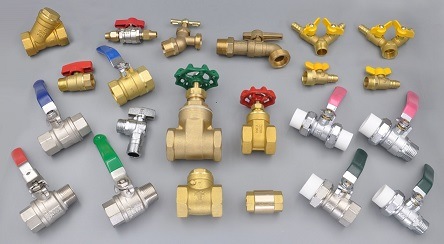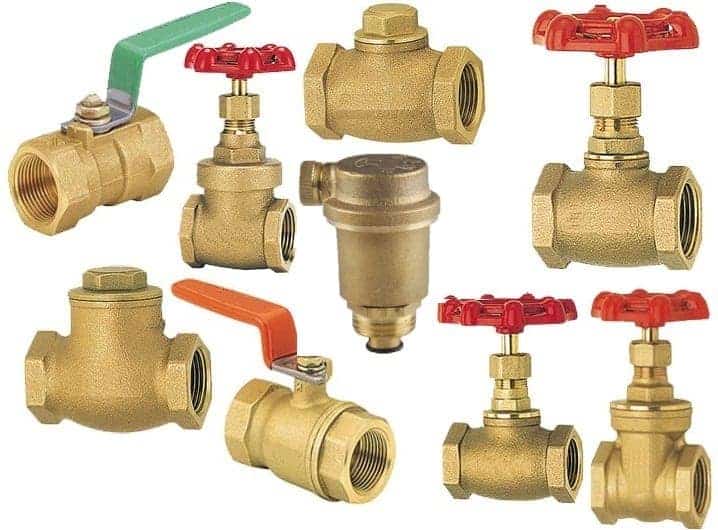
What is Brass Valves Malaysia And Stainless Steel Valves Difference?
Brass Valves
Brass Valves Malaysia could be a copper alloy which implies that it’s stronger than plastic. This extra strength makes them, tho’ not the foremost expensive choice for valve, dearer than PVC or plastic valves. Brass Valves Malaysia is a mixture of copper ANd zinc, and sometimes different metals. Due to its nature as a soft metal, it is ready to resist corrosion okay muliatoto as against plastic valves.
Brass is additionally able to absorb and stand up to additional heat than plastic. Creating brass valves and best choice for reception plumbing systems. One important distinction between chrome steel and brass valves is that brass direkturtoto valves tend to simply accept fastening. Which are higher than chrome steel valves. This offers some versatility. However, brass valves do have some drawbacks.
Click Here For A guide to laboratory research equipment Malaysia
Often times, brass valves contain little amounts of lead. Most of the time brass valves are created of not capitaltoto up to 2% lead. But this causes some skepticism for many. In fact, the authority doesn’t approve of brass valves being employed unless they’re certified lead-free. Use discretion once selecting the valve material for your next project.
Stainless Steel Valves
While a dearer choice than brass, steel could be a terribly durable, resilient metal. Whereas brass is a copper alloy, chrome steel is AN iron alloy mixed with atomic number 24 and nickel. The nature of the fabric implies that these valves are ready to effectively resist leaks. Steel is additionally able to add additional temperatures than brass and tends to last longer. Chrome steel valves are the simplest choices for top pressure sultantoto and temperature situations. They’re also a good material for corrosion resistance. One kind of stainless steel valve, stainless steel 316, is particularly corrosion resistant as a result of it’s more nickel and also contains Mo. This mixture of iron, nickel and molybdenum build the valves especially immune to chlorides and very helpful in marine environments.

Difference between Brass Ball Valves & chrome steel Ball Valves
Material: The brass valve could be a copper alloy with copper and metal often mixed with different metals, whereas the stainless steel ball valve is an iron alloy of metal and nickel.
Cost : Once the No-Lead laws started coming back into impact in many countries and Provinces in North America, No-Lead Brass grew in quality and also the rise of No-Lead Brass pricing. The value of stainless steel ball valves is more than that of leaded brass ball valves, however the price of leadless brass ball valves isn’t much different. It is a smart choice of exploiting No-Lead brass ball valves on non-potable water applications and this will prevent plenty of money.
Bureau Approval : The FDA doesn’t approve of brass ball valves unless they’re certified lead-free, creating them a poor choice to be used within the food industry. chrome steel ball valves, however, are approved by the FDA for use in the food industry.
Softness: Brass is softer than unsullied steel, which makes it easier to seal brass ball valves than stainless steel ball valves. And merchandise for protection brass ball valves are easier to get than products for protection chrome steel ball valves. attributable to its chemical makeup, brass is way better for fastening than unsullied steel. so as to use stainless steel for welding, you need to usually break down its chemical compound layer.
Corrosion Resistance: Brass in a very position is ready to face up to corrosion better than plastic. However, stainless steel continues to be the simplest within the corrosion resistance department, particularly in marine environments. chrome steel ball valves will hinder far better in a harsher water environment, and this can guarantee a longer-lasting valve.
Pressure Ratings: usually speaking, stainless steel ball valves have higher pressure ratings than brass. For example, a standard brass valve may need a pressure rating of 600 PSI on a 1” model. a regular unsullied ball valve would most likely have a pressure rating of one thousand PSI on a 1” model. Therefore, chrome steel ball valves are additional immune to higher than brass ball valves.
High-Temperature Resistance: Steel is additionally able to add more temperatures than brass and tends to last longer. chrome steel ball valves are the simplest choices for high-temperature situations.